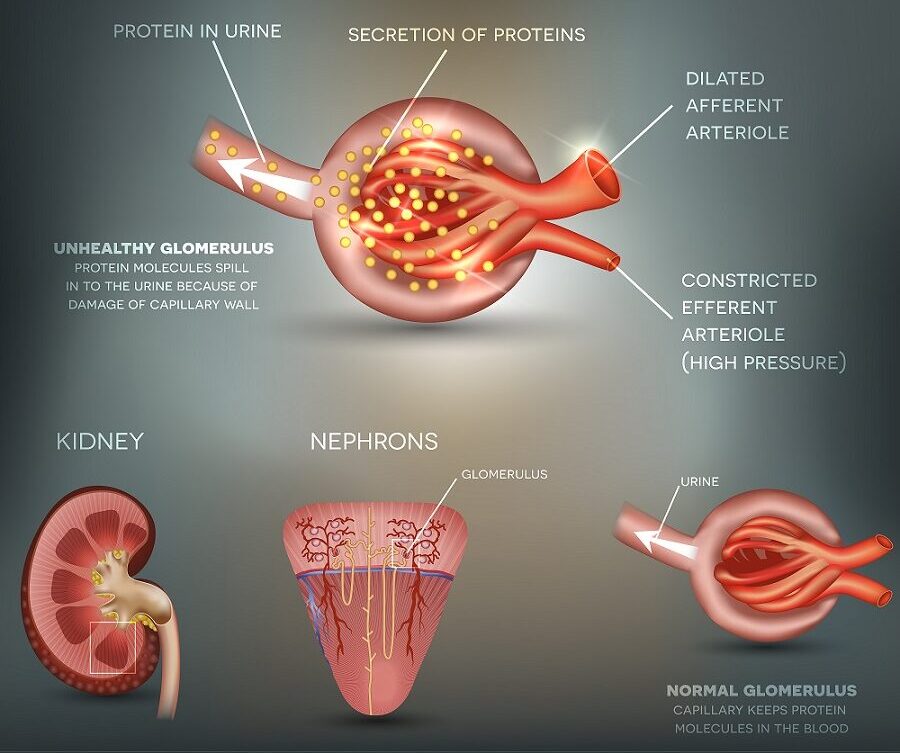Proteinuria, the presence of excess protein in the urine, is more than just a clinical marker—it’s a crucial indicator of kidney health. Understanding proteinuria’s impact is essential for early diagnosis and management of potential kidney diseases. This condition can signal underlying issues ranging from benign, temporary conditions to serious chronic kidney disease. By exploring the causes, effects, and treatment options associated with proteinuria, we can better grasp its significance and take proactive steps to maintain renal health and overall well-being. Dr. Gaurav Tandon from Kidney Clinic of North Florida can help patients in North Florida experience optimal kidney health.
What is Proteinuria?
Proteinuria, or protein in urine, is a common symptom of kidney problems, but not many are aware of its significance. It is important to know that early detection of Proteinuria often leads to successful treatments that maintain your kidney health. So let’s dive a bit deeper and demystify what Proteinuria means for you as residents of Jacksonville, Florida.
Causes and Symptoms of Proteinuria
Many things can cause Proteinuria, such as diabetes, high blood pressure, certain drugs, or diseases that cause inflammation in the kidneys. Acute kidney injuries and chronic kidney disease could often lead to Proteinuria. Proteinuria itself usually doesn’t cause symptoms. But if a lot of protein has leaked into the urine, it may cause it to foam a lot. This can be a sign of severe Proteinuria. In such cases, we need to assess potential underlying issues, such as kidney disease.
The Hidden Threat of Proteinuria
Proteinuria is essentially a barometer for kidney health; persistent Proteinuria could be a clear signal that your kidneys are not working properly. Remember, many people with kidney diseases do not have symptoms until extensive kidney damage has occurred. This is why catching and treating kidney issues is important as early as possible. Regular monitoring can prevent further kidney damage.
Preventing and Treating Proteinuria
The best way to prevent and treat Proteinuria is to maintain strong kidney health. Regular exercise, a low-salt and low-fat diet, maintaining a healthy weight, and managing conditions like diabetes or high blood pressure can all help. Dr. Tandon at the Kidney Clinic of North Florida can give you personalized recommendations based on your overall health and any other conditions you might have.
Kidney Health Above All
Your kidney health matters, and rest assured that here at the Kidney Clinic of North Florida, Dr. Tandon and his team are eager to help. Remember, early detection of Proteinuria can make a major difference! Come and visit us for a check-up. We’re located conveniently right here in Jacksonville.
Schedule a Consultation
Taking charge of your kidney health is a vital step towards overall well-being. If you have concerns about proteinuria or are experiencing symptoms that may indicate kidney issues, seeking professional medical advice is crucial. Scheduling a consultation at the Kidney Clinic of North Florida can provide you with a comprehensive evaluation, personalized care, and the latest treatment options. Head to our website today to fill out an online contact form and get in touch with a team member.




